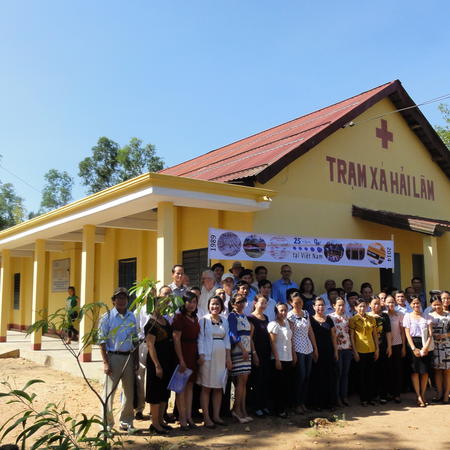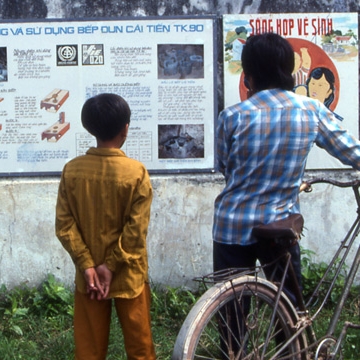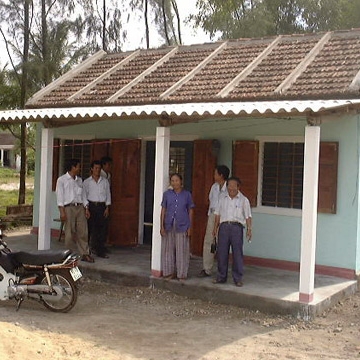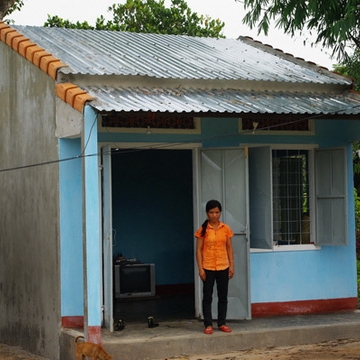Shared knowledge provides better Climate Change adaptation
In order to strengthen the work on climate change adaptation in Asian countries, more knowledge is required and a better exchange of experiences. A newly created regional platform will provide those who work with climate change adaptation with the correct tools so that they can better develop the capacity at all levels of society.
The Regional Adaptation Knowledge Platform for Asia was launched in 2009. Its objective is to develop a regional capacity for adaptation and it focuses on three different parts: 1) sharing knowledge, 2) developing new knowledge and 3) applying knowledge. The first phase of the work has been to visit the 13 Asian countries involved in the platform.
“We have visited the countries to find out what is being done in the adaptation area, what knowledge is available and what is needed. Through the various national partners we have selected, we have received help in getting in touch with the right stakeholders. After that, we put together a scoping report for each country,” says Roopa Rakshit, the coordinating team leader for the platform at UNEP.
Sharing knowledge and experiences and disseminating this to participants at various levels, is an important aspect of the work for the platform in the region. The exchange of information takes place, among other things, through the thematic seminars which are held in Bangkok every other month. The regional organisations involved have an office in Bangkok and they can then in turn disseminate the information from the seminars and in that way reach out to even more people.
The seminars take up different subjects, from adaptation at a local level and the challenges facing coastal societies in terms of gender equality and health, to the role of the private sector and that of the media. Just as important as the actual lecture are the participatory group exercises that are held during the seminar, where various recommendations are put forward for publication.
The web portal www.asiapacificadapt.net serves as an important gathering point for all of the adaptation information generated by the platform, which is available to experts, policymakers and other national and local participants.
Roopa Rakshit says that the feedback she has received as regards the results has been very positive. They constantly receive many invitations from different places to share their work with the platform.
“We have also received extremely positive feedback regarding the good examples of adaptation measures, which we have written about in the newsletter. And many people write and tell us about their own experiences that we can pass on,” says Roopa Rakshit.
The culmination of the platform’s first two years of operation has been the two-day forum, held in October, the Asia-Pacific Climate Change Adaptation Forum. In 2010, more than 800 of the world’s foremost climate adaptation experts came to the forum, from various international NGOs, donor organisations, authorities, research institutes and universities in order to share their knowledge and experiences. In 2011 the Forum was cancelled due to severe flooding in Bangkok.
“If you can gather together 800 people representing a wide range of organisations, you can disseminate a lot of knowledge by getting them to take the information home with them. For many people, the issue of climate change is still a new concept and it is important to increase people’s awareness at all levels,” says Roopa Rakshit.
Facts about the platform
The Regional Climate Change Adaptation Knowledge Platform for Asia is funded by Sida and is a collaboration between Sweden’s Environmental Secretariat Asia (SENSA), Stockholm Environment Institute (SEI), and the UN’s Environment Programme Regional Resource Centre for Asia and the Pacific (UNEP-RRC.AP), in which the latter two carry out the activities. An additional cooperating partner in parts of the project is Asia-Pacific Adaptation Network (APAN).
The purpose of the platform is to more effectively share information about climate adaptation efforts and develop adaptive capacity in Asian countries. Project period: 2009-2011.
13 countries are involved in the first phase of the platform work: Bangladesh, Bhutan, Cambodia, China, Indonesia, Laos, Malaysia, Burma, Nepal, Sri Lanka, the Philippines, Thailand, and Vietnam.
Examples of activities implemented:• The web portal www.asiapacificadapt.net created for an efficient two-way flow of information.
• A large number of policy summaries, desktop studies and briefs have been produced. Completed scoping reports from Bangladesh, Cambodia, Nepal, Thailand, Vietnam, Sri Lanka, Laos and Malaysia.
The work of compiling reports from Indonesia, China and the Philippines is in progress.
• Country-specific activities for the application of new knowledge in all 13 countries.
• A newsletter entitled Ecommuniqué is sent out every month to 4000 recipients and encourages the sharing of experiences and the dissemination of information on new initiatives and events.











